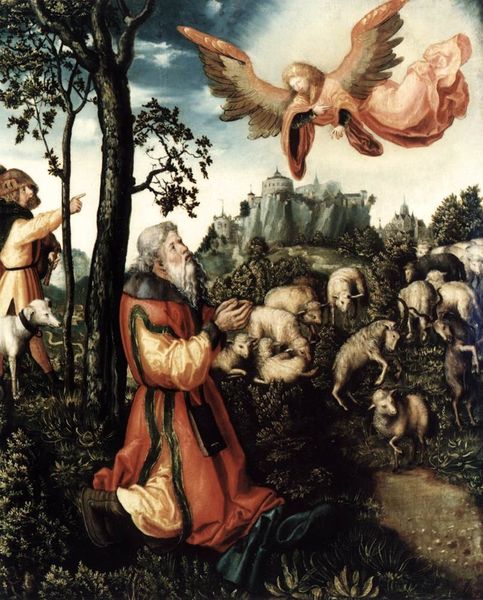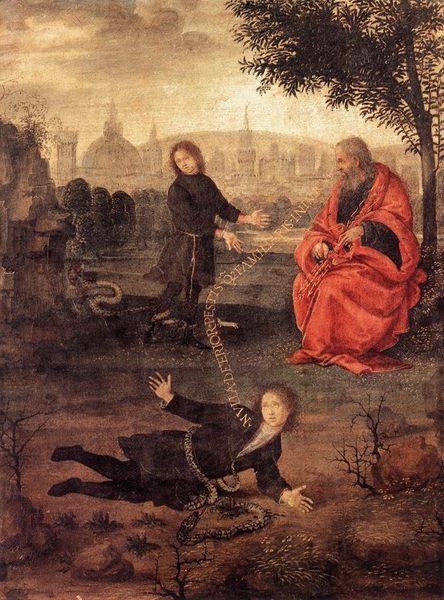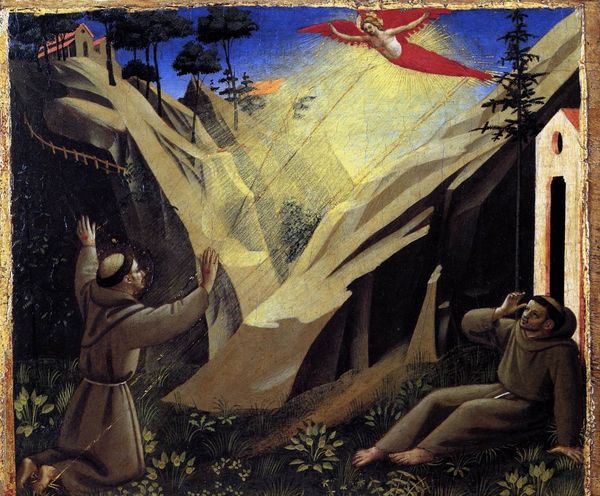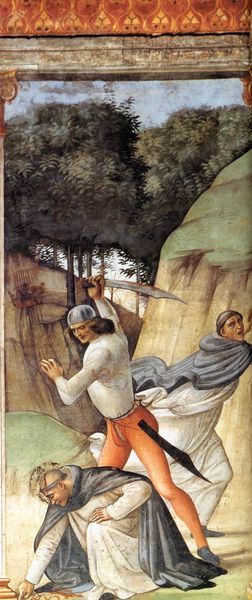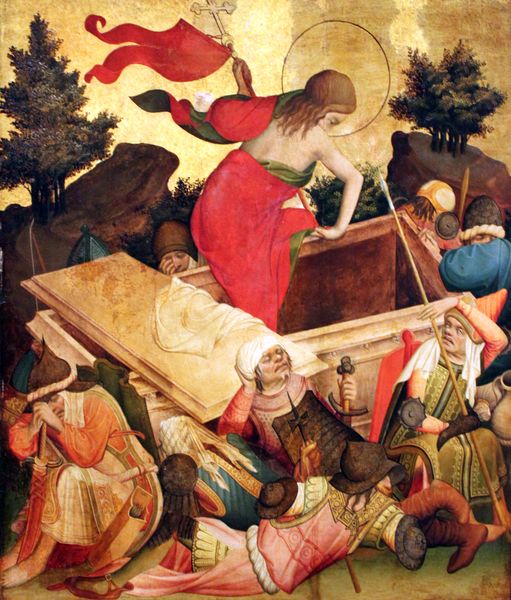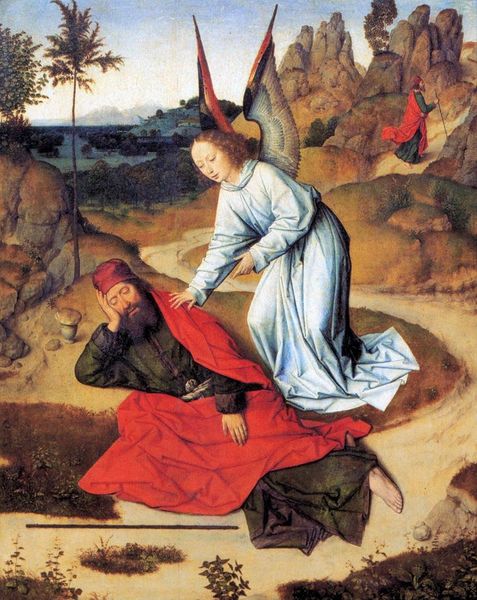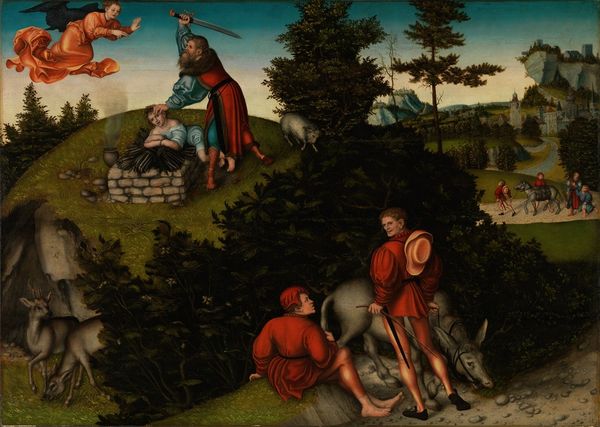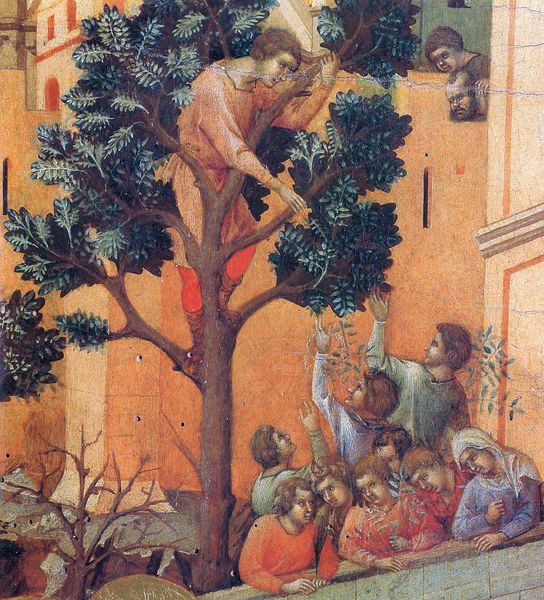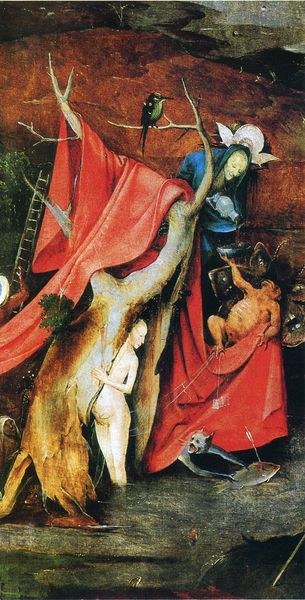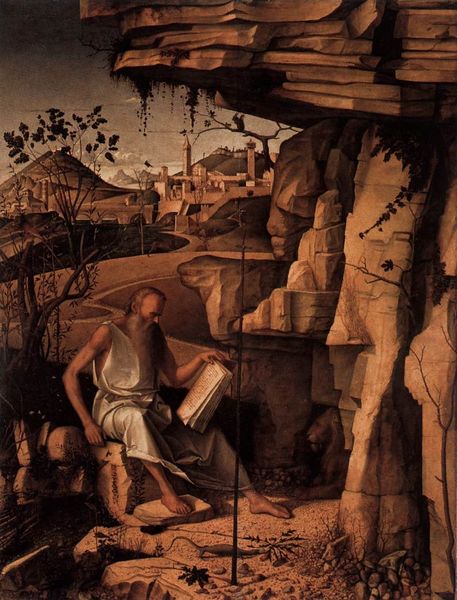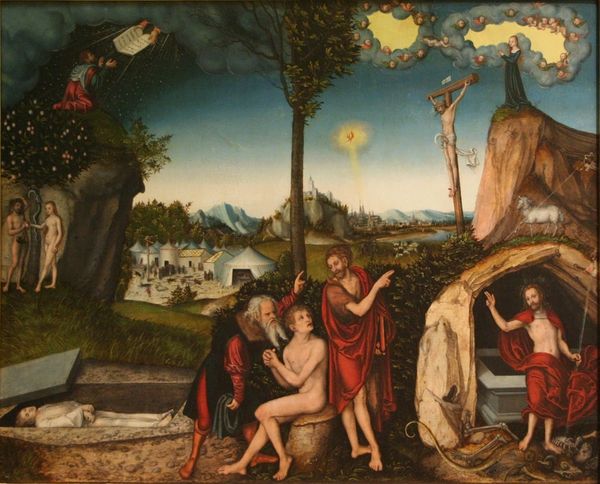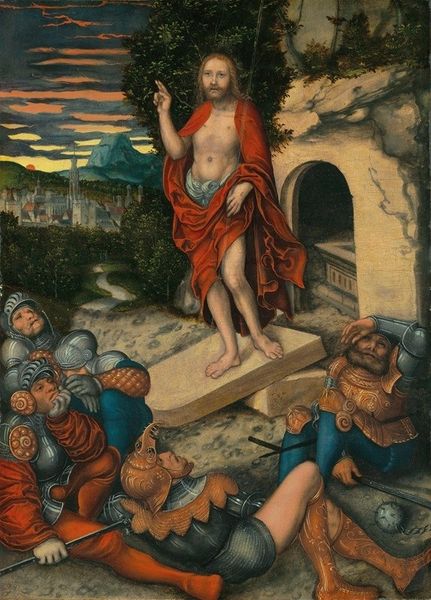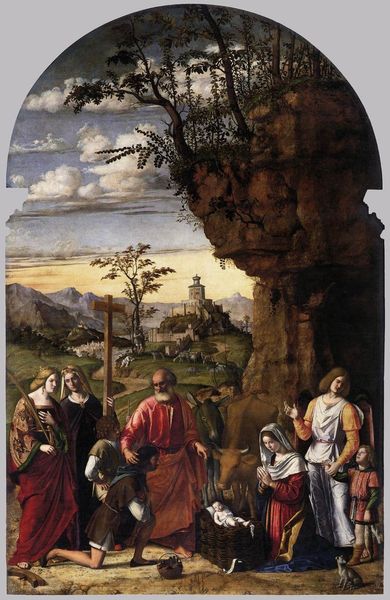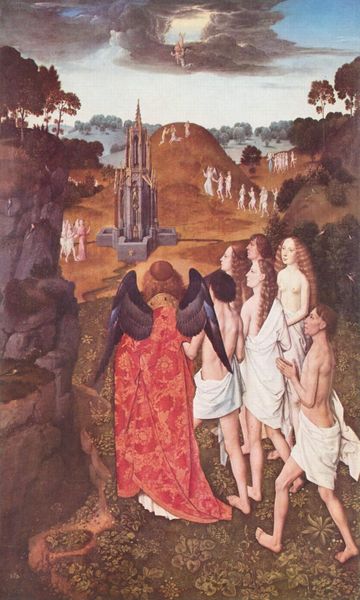
painting, oil-paint, fresco
#
portrait
#
painting
#
oil-paint
#
landscape
#
figuration
#
fresco
#
oil painting
#
jesus-christ
#
christianity
#
genre-painting
#
history-painting
#
academic-art
#
italian-renaissance
#
early-renaissance
#
christ
Copyright: Public domain
Editor: This is Botticelli's "The Agony in the Garden," created around 1500. It's an oil and fresco painting, and the scene is incredibly poignant, almost dreamlike, but the figures at the bottom feel strangely grounded in comparison. What stands out to you most in this piece? Curator: The immediate thing I see is this visual division, how Botticelli separates the earthly realm, where the disciples slumber, from the divine encounter occurring above. Note the angel presenting the cup to Christ. What does that cup represent? Editor: I think that cup symbolizes Christ’s impending suffering and sacrifice. The acceptance of his fate? Curator: Exactly. It's an emblem, resonating through centuries of Christian iconography, signifying acceptance but also the burden of divine will. The garden itself is another layer of symbolism, representing a space of both peace and profound inner turmoil. Think back: What other gardens feature prominently in origin stories? Editor: You mean like, the Garden of Eden? Curator: Precisely. This agony in the Garden of Gethsemane serves as a new trial. Here, Christ grapples with a decision, much like Adam and Eve. Does the placement above and outside the fence represent him moving to outside the safety of the 'garden' of men, perhaps indicating moving toward this trial? Editor: The parallels are really striking. It almost feels like Botticelli is creating a visual echo of humanity’s choices and the weight of those choices. It makes it so much more powerful to realize those figures sleeping at the bottom were meant to witness, but failed. Curator: Indeed, this is the emotional weight these visual cues evoke! From original sin, down to his very followers missing their leader’s ultimate challenge. What an invitation for reflection this painting gives to us, and to any viewer from Botticelli’s time to ours! Editor: This has been such a good breakdown! I've definitely gained a deeper understanding of this piece.
Comments
No comments
Be the first to comment and join the conversation on the ultimate creative platform.
